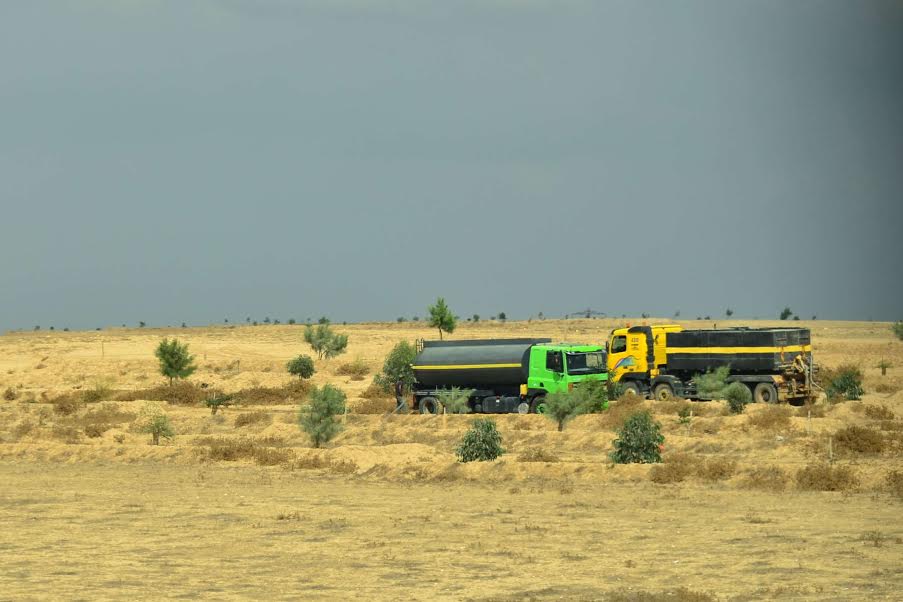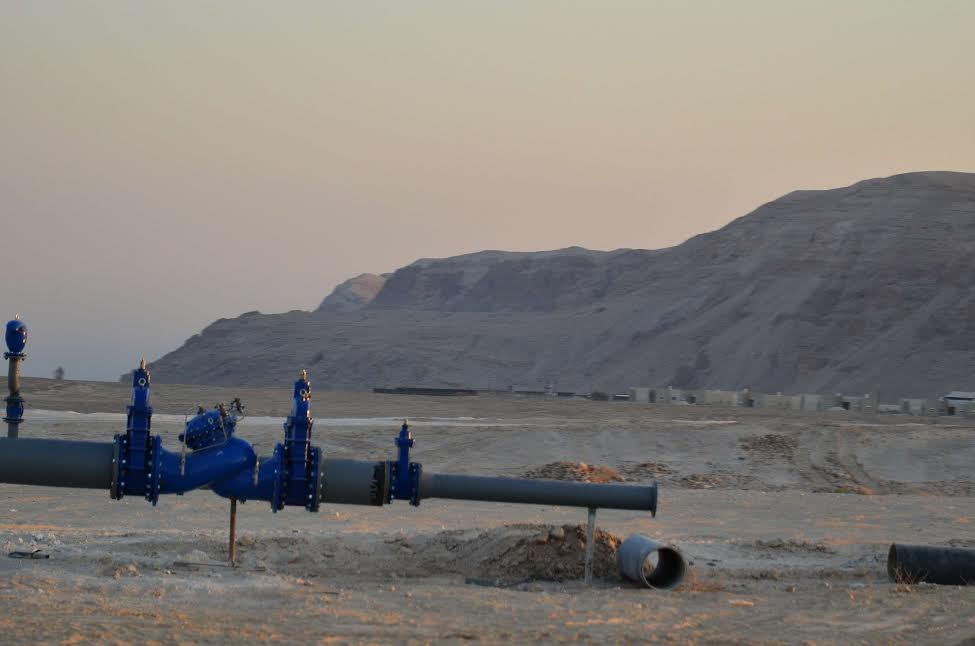When Israel’s national water company operates more than 40 wells in the West Bank, appropriates Palestinian water resources and controls the valves, is it any surprise that priority is given to Israeli settlements?
By Stephanie Westbrook
Qarawat Bani Zeid is a small Palestinian town of 3,500 north of Ramallah in the occupied West Bank. There are no Israeli settlements in the immediate vicinity. The route of Israel’s separation wall does not run through the area and Qarawat is in Area A — under the full control of the Palestinian Authority. And yet, Israel’s military occupation and discriminatory policies manage to cut into everyday life.

“Our biggest problem is water,” explained Sabri Arah, a member of the town council.
Qarawat sits atop the Western Aquifer, the largest and most productive sub-basin of the Mountain Aquifer, the main groundwater source in the West Bank, yet 80 percent of the town’s taps are dry. “Water is pumped out before it arrives to the town,” noted Arah.
The company pumping the water out is Mekorot, Israel’s national water company. Mekorot not only operates more than 40 wells in the West Bank, appropriating Palestinian water resources, Israel also effectively controls the valves, deciding who gets water and who does not. It should be no surprise that priority is given to Israeli settlements while service to Palestinian towns is routinely reduced or cut off.
The right to water was the focus of a recent delegation of the Italian Forum of Water Movements visiting Palestinian communities in the West Bank and Israel as part of the Beyond Walls project of Servizio Civile Internazionale, an Italian NGO committed to human rights and social justice.
Last December, during the Italy-Israel bilateral summit, a cooperation agreement was signed between Mekorot and Acea, Italy’s largest water utility.
Together with Palestine solidarity groups, Italian water movements have been waging a campaign calling on Acea, as well as the City of Rome, a majority shareholder in the company, to cancel the agreement due to Mekorot’s violations of international law.
The main goal of the trip was to gather documentation and direct testimony to support the campaign against the Mekorot agreement, identifying ways to further involve Palestinian groups.
Mekorot’s role in water privatization around the world was an added incentive for Italian water movements to get involved. Water as a common good has been their focus of the movements, which have been hugely successful, several times over.
In 2010, over 1.4 million signatures forced a national Italian referendum on the issue. In June 2011, over 26 million ballots were cast, meeting the quorum for the first time since 1995, with a crushing majority of over 95 percent voting in favor of keeping water public.
Despite what could not have been a more clear indication, successive governments have attempted to circumvent the public’s will and the referendum remains unimplemented.
The Palestinians we met were able to relate to this turn of events. They, too, have to continually fight for their rights. Evidence of Israel’s discriminatory policies, which create an artificial water crisis affecting only one people, was everywhere to be seen.
At the Aida refugee camp on the outskirts of Bethlehem, a cramped, overcrowded home to about 5000 people, nearly 40 percent under the age of 14, water from the mains comes an average of 6 hours per week.
In his award-winning short film “Everyday Nakba,” Mohammed al Azzeh, of the camp’s Lajee Center, captures the joy and the frantic rush to get the pumps working to fill rooftop tanks the moment the water comes on.
“Look at the settlement of Gilo next door. Do you see any water tanks on their roofs?” asked Azzeh. “They have water 24 hours a day, seven days a week.”

The delegation also visited Palestinian communities within Israel, like Al Araqib where, despite being Israeli citizens, residents face nearly identical policies denying them access to water.

Across the world, as the part of the international campaign against Mekorot, those working for Palestinian rights have joined forces with those struggling against the privatization of water to denounce Mekorot’s role in both denying Palestinians access to water and in the commodification of a fundamental common good.
Stephanie Westbrook is a U.S. citizen based in Rome, Italy. Her articles have been published by Common Dreams, Counterpunch, Electronic Intifada, In These Times and Z Magazine. Follow her on Twitter at @stephinrome.
Related:
PHOTOS: 13 days without water in East Jerusalem
WATCH: Jordan Valley settlements dry up Palestinian water supply
Visualizing Occupation: Distribution of Water






